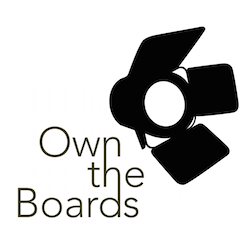Selecting Your Passage
Consider a range of genres, some of which include poetry, fiction, non-fiction, sacred texts, and song lyrics. Choose sections that are meaningful to you or that you find beautiful.
If this is your first effort memorizing a piece of literature, start small – with a short poem, or a chunk of prose.
Don’t be afraid to push your boundaries, though. Longer pieces may take more time to memorize, and performing them may prove difficult, but your sense of accomplishment will be worth it!
Memorizing Your Passage
Try the following suggestions when memorizing your piece.
- Break down your piece by sentences, following the punctuation. Look up any unfamiliar words to make sure you understand the passage’s meaning in its entirety.
- Read through your passage several times, then begin slowly putting small sections to memory.
- As you memorize, think about what is going on in your passage. What emotions are depicted? What emotions do you feel? Try to connect those emotions to the words.
- Practice going through your lines first thing in the morning and just before bed.
- Think through your lines while performing menial tasks that require you to move, such as during exercise or housework.
- Form an OTB group dedicated to holding each other accountable. Practice your performances with each other and select deadlines for your performance uploads.
Performing Your Passage
Use the following techniques when performing your passage.
- Play with pace, using punctuation and emotion to guide your cadence.
- Modulate your tone to emphasize important or crucial sections. Try slowing down for emphasis, and don’t be afraid of silence between words and lines.
- Practice voice exercises before your performance to better articulate your words.
- Perform standing or sitting upright.
- Use your whole body, such as hand gestures and facial expressions to support your reading.
Recording Your Performance
Try to following suggestions to make the best-looking video possible.
- Avoid backlighting, such as sitting in front of a window, which will cast shadows on your face.
- Avoid overhead lighting, which will also create unflattering shadows.
- Pick a quiet location to film, with minimal background clutter.
- Employ several light sources from various directions to help reduce shadows.
- Speak in a clear voice loud enough to register with your recording device.
Information to Include With Your Performance
- You might start by stating your name, although you may also chose to remain anonymous.
- Provide your selection’s publication details: author, title, whether it’s from a longer work, and it’s place within that work.
- We also encourage you to give a brief explanation of why you picked this passage and what it means to you.
